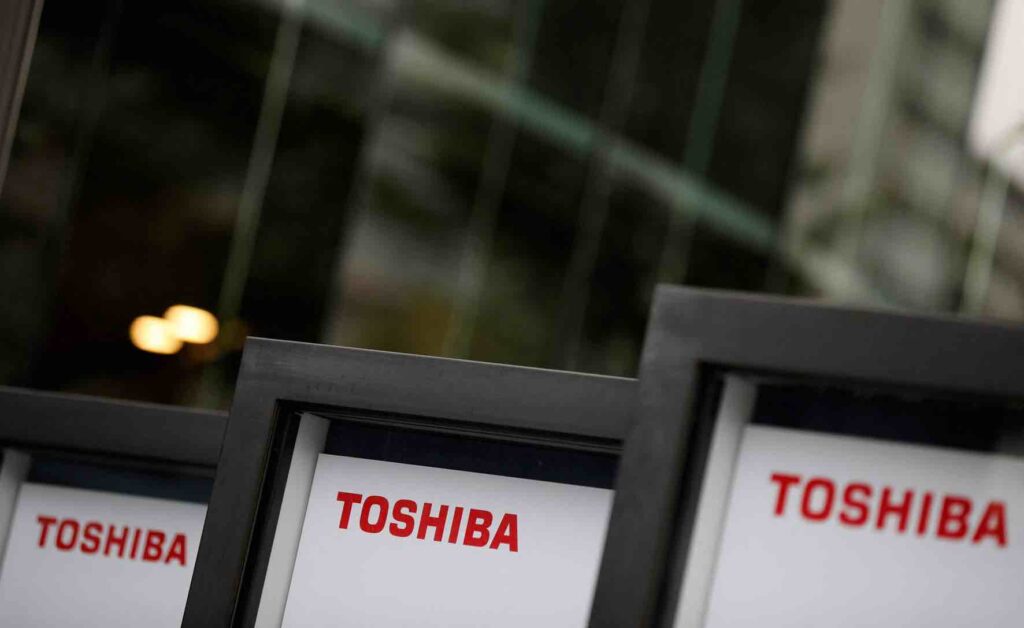
Toshiba Corp said it now aims to break up into two companies instead of three and also unveiled a big boost to planned shareholder returns in an effort to appease angry investors.
Its revised plan is still expected, however, to face much pushback from foreign hedge funds, many of whom have been opposed to any kind of split and would prefer that the scandal-ridden Japanese conglomerate be taken private.
Under the new restructuring, Toshiba will just split off its device business, including its power chip unit. Previously it had aimed to break up into three companies – one for energy and infrastructure, one for devices and one for flash memory chips.
Toshiba also intends to increase shareholder returns to 300 billion yen ($2.6 billion) over the next two years which compares to an earlier target for returns of 100 billion yen.
Shares in the industrial conglomerate closed 1.6 percent higher following the news.
Toshiba said the new restructuring plan was simpler, would save costs and would make it easier for alliances with strategic partners to be pursued.
“We have not changed the plan to avoid confrontation with shareholders,” CEO Satoshi Tsunakawa told a briefing.
He said the revised restructuring would be put to a shareholder vote at an extraordinary general meeting in March with an approval threshold set at just over 50 percent.
Some investors have said they suspect the new plan is designed to allow Toshiba to avoid a shareholder vote that would have required two-thirds approval.
An official at a top-15 shareholder, who declined to be identified, told Reuters on Friday when the plan was first flagged that he believed management had changed the plan to “suit themselves”.
Legal experts say break-ups require the support of two-thirds of shareholders when the book value of the assets being spun off accounts for more than a fifth of the total assets.
Toshiba said even a three-way breakup would not need two-thirds approval under recently revised legislation.Toshiba has had a contentious history with its foreign shareholders, which combined own nearly 30 percent of the company.
Last year a shareholder-commissioned investigation found that the conglomerate had colluded with Japan’s trade ministry – which sees Toshiba as a strategic asset due to its nuclear reactor and defence technology – to block overseas investors from gaining influence at its 2020 shareholders meeting.
Toshiba also said on Monday that it plans to begin the sale process for its elevator and lighting businesses and added that it no longer sees Toshiba Tec Corp, which makes point-of-sale systems and copiers, as a core business.
Toshiba has also asked that Kioxia, the memory chip business in which it holds an 40.6 percent stake, conduct an IPO as soon as possible. It is also looking at a potential sale of its stake in Kioxia.
Earlier in the day, Toshiba announced that it will sell almost all of its 60 percent stake in its air conditioning unit to its U.S. joint venture partner Carrier Global Corp for $870 million.
($1 = 115.2800 yen)
TOKYO (Reuters)